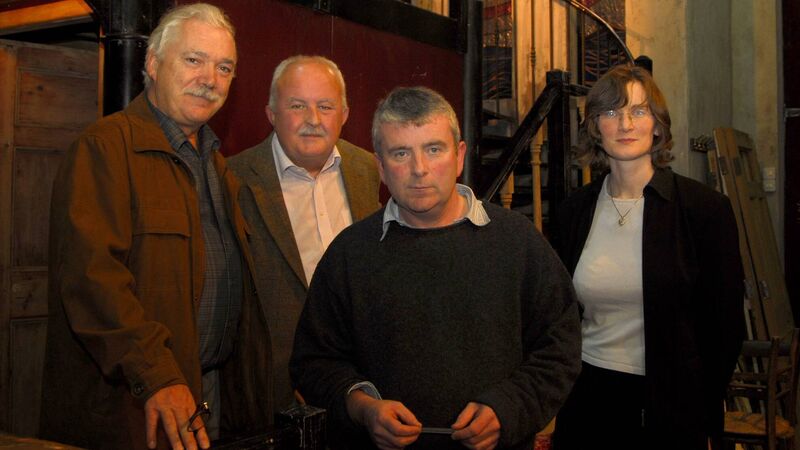Frank Grimes obituary: Dublin breakthrough led to long career on stage and screen in Britain

Actor Frank Grimes, Garter Lane chairman Pat Hayes, playwright Jim Nolan, and Garter Lane director Caroline Senior on the set of 'The Salvage Shop' at Garter Lane, Waterford, in October, 2006. The production, which also played at Dublin's Abbey Theatre, was a rare Irish stage appearance by Frank Grimes since the 1970s. Picture: Orlagh Ní Arrachtáin
When he burst on to the stage of the new Abbey theatre in Dublin in 1967, Frank Grimes, who has died aged 78, was acclaimed as the finest young actor of his generation. That first impact was made as a 19-year-old in a revival of Frank O’Connor’s , a controversial piece about the assassination of the then chief secretary of Ireland Lord Frederick Cavendish and his deputy Thomas Burke, in 1882.
But it was as the young Brendan Behan in (1967) that Grimes hit the big time. Behan’s rollicking autobiographical novel was adapted by Frank McMahon, with Niall Toibín as the older Behan relating the story of the renegade roisterer on a bare stage.












